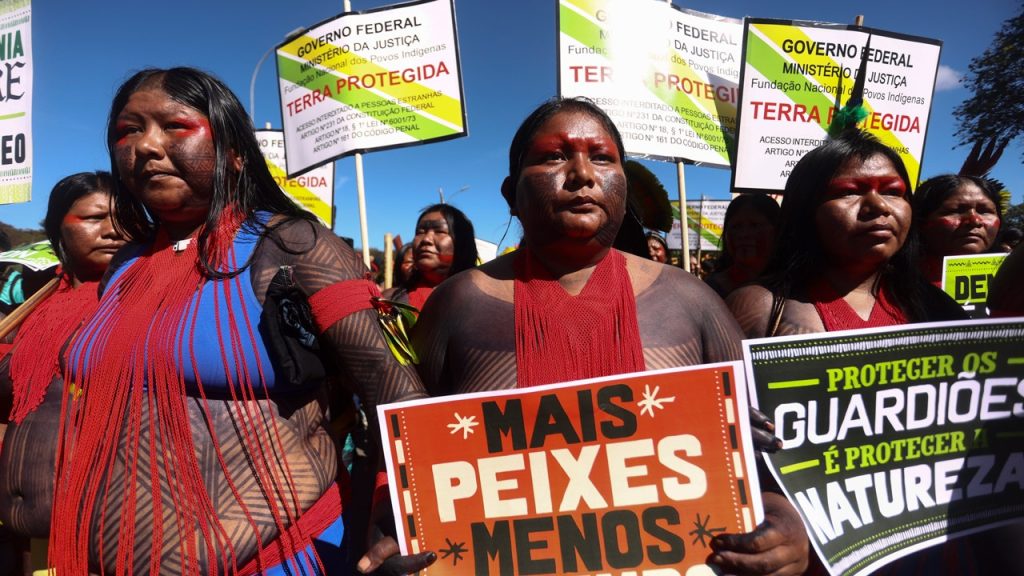Thousands of Indigenous people marched in Brazil’s capital, calling on the government to recognize lands they have lived on for centuries and protect territories from criminal activities like illegal mining. Indigenous leaders entered the presidential palace to speak with President Luiz Inácio Lula da Silva, while others protested the proposed rail project to transport soybeans from Mato Grosso to ports along the Tapajos River. The rally marked the end of the Free Land Indigenous Camp and highlighted the discontent with Lula’s administration, citing political instability, disrespect, and mistrust. Despite creating 10 Indigenous territories since his third term began in January of last year, Indigenous leaders argue that this is not enough, as there are still 251 territories with pending claims for recognition before the federal government.
The Indigenous territories make up about 13% of Brazil’s territory, mostly in the Amazon rainforest. Lula’s pace in demarcating these areas is in stark contrast to his predecessor, Jair Bolsonaro, who vowed not to create any additional Indigenous land. However, Indigenous demands are facing opposition from the agribusiness sector, which has the support of numerous Congress members and governors across the country. This opposition has led to setbacks in the creation of Indigenous territories, with President Lula recently backing down from establishing four territories due to opposition from state governors. Despite the challenges, Indigenous leaders remain vocal in their calls for land recognition and protection against activities like illegal mining, as well as voicing concerns about potential environmental impacts from infrastructure projects like the proposed rail system.
Indigenous leaders from tribes like the Kayapo, Panará, and Munduruku expressed fears over the proposed rail project’s potential impact on deforestation in the Amazon rainforest. They criticized the lack of consultation regarding the project, highlighting ongoing concerns about the government’s treatment of Indigenous rights and environmental issues. The annual Free Land Indigenous Camp, now in its 20th edition, served as a platform for Indigenous voices to raise these concerns and demand action from the government. The camp also reflected a critical view of President Lula’s administration, with Indigenous leaders expressing disappointment in the government’s response to their demands and accusing it of using Indigenous and environmental issues as bargaining chips in Congress.
The Indigenous march in Brasília culminated in a call for the government to recognize Indigenous lands and uphold their rights, with messages like “The future is Indigenous” displayed on posters during the rally. While President Lula has made some progress in creating Indigenous territories, there is still a significant backlog of pending claims that need to be addressed. The Indigenous community faces ongoing challenges in asserting their rights and protecting their territories from external threats like illegal mining and infrastructure projects that could lead to increased deforestation in the Amazon. Despite these obstacles, Indigenous leaders remain steadfast in their demands for land recognition and environmental conservation, emphasizing the need for government action to address these pressing issues facing Indigenous communities in Brazil.


